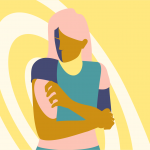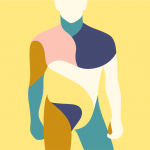Cold Agglutinin Disease (CAD)
This in-depth guide to Cold Agglutinin Disease (CAD), a rare disorder of the immune system, offers insights on the latest research from leading doctors in the field.
Explore popular cold agglutinin disease (CAD) articles and topics
Understanding Cold Agglutinin Disease (CAD)
Explore popular cold agglutinin disease (CAD) articles and topics
Treating CAD
The treatment options for this disorder depend on if there is an underlying condition and what that condition is. In some cases, treatment may not be necessary.
Dr. Roy Smith, a hematologist/oncologist at the University of Pittsburgh, tells SurvivorNet that in some instances, simply avoiding the cold may be all the treatment someone needs. "Often, it's a matter of just telling a person to wear gloves or wear a coat, keep their house at a higher temperature, or move to another place … something along those lines."
“The first step is to determine whether they actually need to be treated or not” – Dr. Roy Smith
When cold agglutinin disease is caused by a blood cancer like lymphoma, your doctor may suggest chemotherapy or a targeted therapy to get the underlying condition under control.
"You want to treat the underlying condition that's driving CAD, so the standard-of-care for that condition is a chemotherapy or therapy to target those lymphoma cells. When CAD is acting up significantly, then you want to treat the [disease] itself," Dr. Choi said.
"The first line treatment is something called Rituximab," he explained. The drug "specifically targets lymphocytes, which is a type of blood cells."
Dr. Jun Choi explains treatment options for CAD.
Dr. Choi explained that most patients respond relatively well to Rituximab, which is a type of drug called a monoclonal antibody. The drug may also be used after a relapse.
"In the minority of patients who do not respond to this standard therapy … there are many other treatment options that are being developed in clinical trials," Dr. Choi said.
Treating CAD Caused by Another Condition
When CAD is diagnosed in younger patients, it is typically caused by an infection, according to Dr. Choi, and treatment will again revolve around treating that root condition.
"CAD can also be caused by particular types of infections, such as mycoplasma, pneumonia, or other types of viruses … and this is more common in young patients," Dr. Choi explained. "When it is caused by those infections, you want to really treat those infections with antibiotics and antivirus medication. Usually the CAD goes away when the infections are treated."
When the disease is caused by some type of autoimmune disorder, like rheumatoid arthritis or lupus, treating the root cause also tends to be effective, resulting in the CAD going away, Dr. Choi said.
It’s also crucial to keep in mind that not everyone diagnosed with CAD will require treatment. It really depends on your individual disease and how it is affecting you.
“Some people just have to avoid cold temperature and that should be adequate to maintain adequate levels of blood cells” – Dr. Jun Choi
Dr. Choi stressed advocating for yourself after a diagnosis, particularly because CAD is a rare disease.
“When the disease is diagnosed, you want to push forward the standard therapy, and you want to make sure the treatment is necessary because some people do not need treatment,” he said. “Some people just have to avoid cold temperature, and that should be adequate to maintain adequate level of blood cells.”
Living With CAD
No matter what the root cause of the condition is, it's important for patients to avoid extreme cold, which can make the disease worse.
"You want to avoid cold temperature, and when you need blood transfusions for low blood cells, we ask the blood bank to warm up the blood," Dr. Choi said. "So that cold temperature is avoided in every circumstances and that really helps to reduce the antibody from destroying your red blood cells and making your CAD progress."
Sometimes, when symptoms are mild, a patient will not need treatment, but staying warm should still be a priority to avoid causing the CAD to progress. This involves staying away from cold weather as well. For some patients, staying away from cold food and drinks may also be required. It's important to talk to your doctor about what you can do to keep the disease from progressing.
Inspiring Stories for Those Living With Cold Agglutinin Disease (CAD)

Please confirm you are a US based health care provider:
Yes, I am a health care Provider No, I am not a health care providerSign Up Now.
Take Control of Your Disease Journey.
Sign up now for expert patient guides, personalized treatment options, and cutting-edge insights that can help you push for the best care plan.








